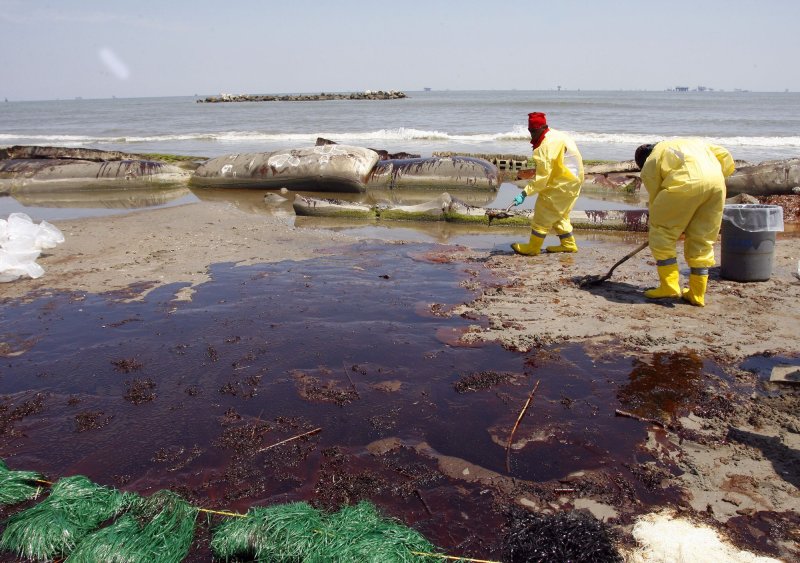1 of 5 | BP workers use shovels to clean oil from a beach at Port Fourchon, Louisiana, May 24, 2010. Oil has been washing ashore on the coast of Louisiana for the past several days as a result of the BP Deepwater Horizon oil rig explosion April 20. UPI/A.J. Sisco |
License Photo
WASHINGTON, Jan. 9 (UPI) -- Ravenous bacteria helped rapidly cleanse the Gulf of Mexico of much of the oil and gas released in the Deepwater Horizon disaster of 2010, researchers say.
A report released Monday by the National Academy of Sciences credited hungry bacteria, fortuitous ocean currents and sea floor topography with purging the oil many had believed would persist in the region's waters for years, The Wall Street Journal reported.
"There was a lot of doomsday talk," study co-author David Valentine, a microbiologist at the University of California at Santa Barbara, said.
But it turns out "that the ocean harbors organisms that can handle a certain amount of input" in the form of oil and gas pollutants, he said.
Topography in the Gulf of Mexico also played a vital role, researchers said.
The gulf is bound on three sides by land, on the north, east and west, so currents don't flow in a single direction as in river but rather slosh back and forth as if trapped in a washing machine.
When currents carried oil and the bacteria feeding on it away from the spill site, they would then circle back, bringing the bacteria on the attack again to mop up yet more hydrocarbons, researchers said.
Oil companies ought to ascertain the currents, water motion and native microbial community in the water before embarking on any major offshore drilling, Valentine suggested.
"Then, if there is an event, we'd be many steps ahead of understanding where the oil may go and what the environment's response may be," he said.















